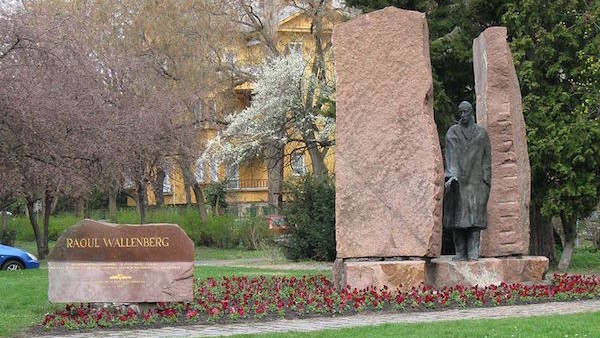10 Strangest World War II Unsolved Mysteries
9. The Fate Of Raoul Wallenberg

Raoul Gustaf Wallenberg is considered a humanitarian hero of World War II - having saved up to 60,000 Jews from Nazi-occupied Hungary during the Holocaust, offering them fake passports and shelter, as well as providing food, soup kitchens, and hospitals to those threatened with death camps.
Yet when the Soviets advanced through Eastern Europe, "liberating" the region country by country, the Swedish businessman was arrested by the Red Army during the Siege of Budapest on suspicion of espionage. Although the Soviets claimed that Wallenberg had died in his cell at the KGB's Lubyanka prison on July 17, 1947, this account appears flimsy at best.
Their explanatory document read:
"I report that the prisoner Wallenberg who is well-known to you, died suddenly in his cell this night, probably as a result of a heart attack or heart failure. Pursuant to the instructions given by you that I personally have Wallenberg under my care, I request approval to make an autopsy with a view to establishing cause of death... I have personally notified the minister and it has been ordered that the body be cremated without autopsy."
Most remained unconvinced by this explanation, and in 1991 the Russian government asked Vyacheslav Nikonov to investigate Wallenberg's death. The investigation concluded that the Swede was likely executed at Lubyanka in 1947, possibly via the C-2 poison (carbylamine-choline-chloride) that was being tested by the Soviet secret services at the time, and that was why the body was cremated pre-autopsy.
In the years since, various other claims have arisen - such as Wallenberg having been shot in 1947, that he was poisoned by other means, or that he was beaten to death. More bizarrely, however, various prisoners - right the way up until 1987 - have claimed to have spoken to Wallenberg, and some believe he was not actually murdered early and was instead incarcerated for up to 40 years.
None of these explanations provide a reason for why exactly he was imprisoned or killed, but it was likely to have been because he was considered dangerous to the state - maybe due to suspected connections to the US intelligence services. Certainly a strange case.